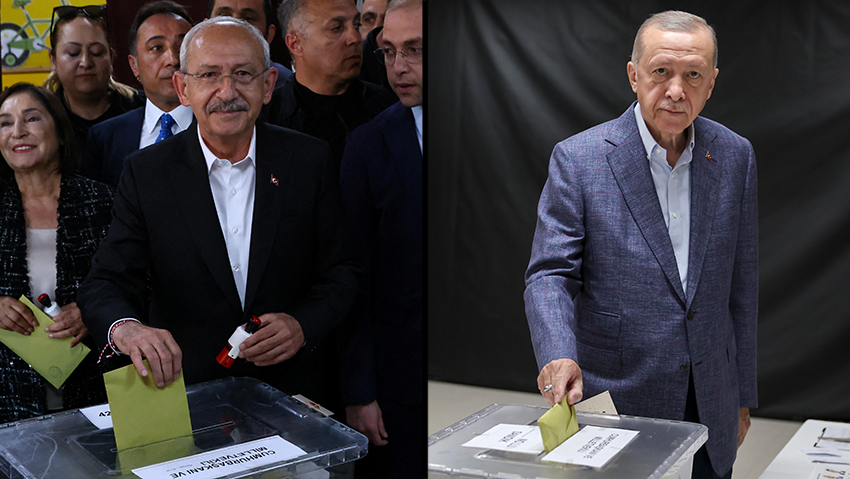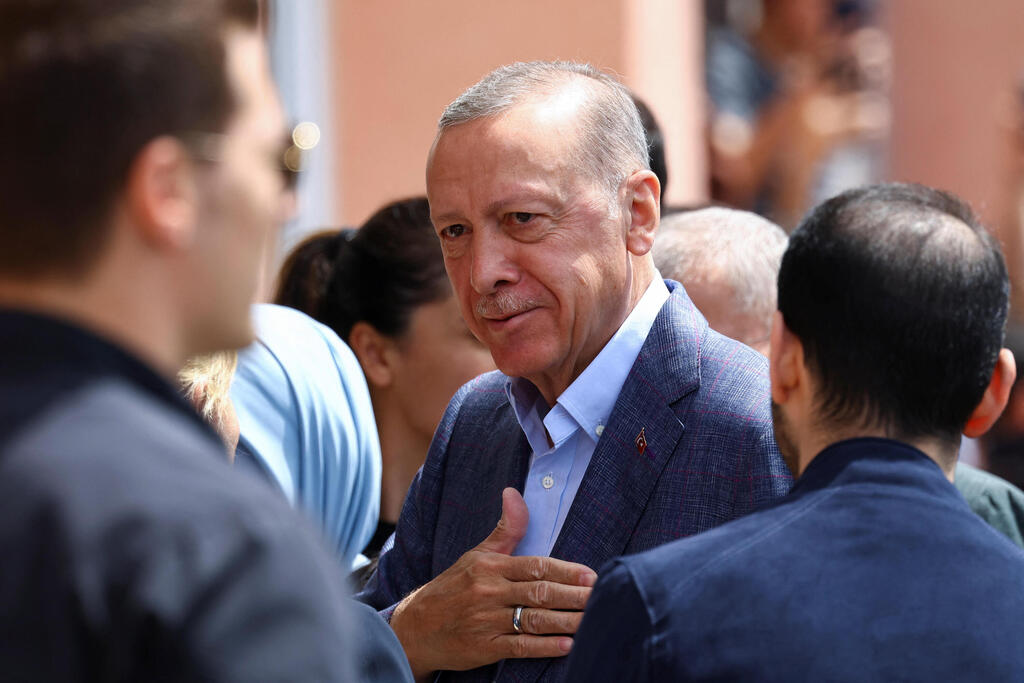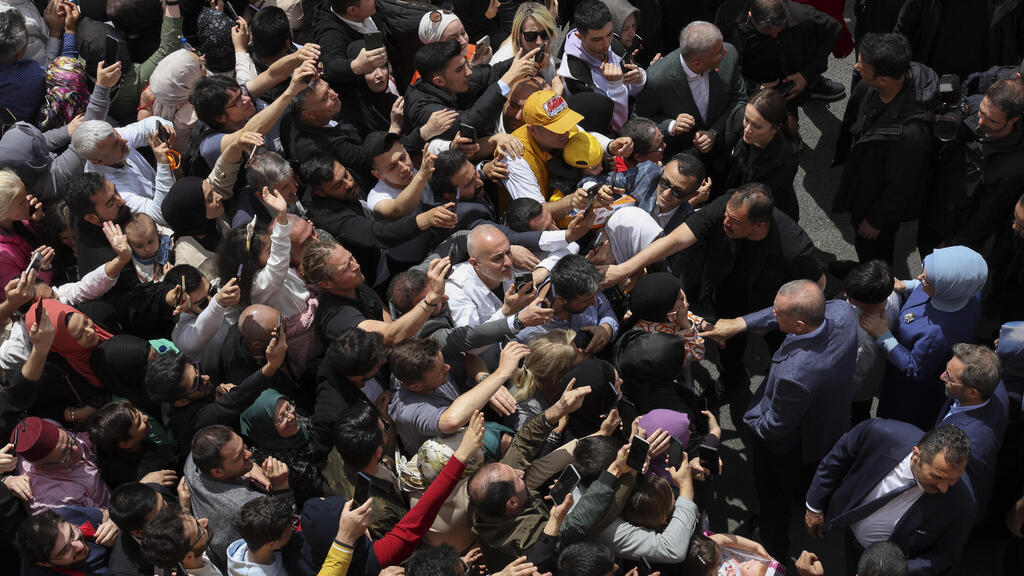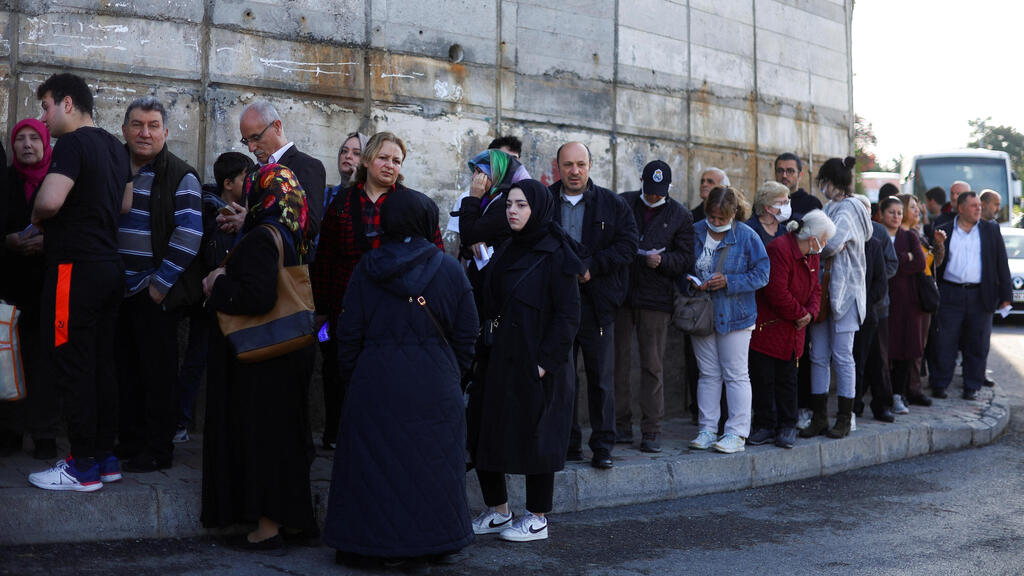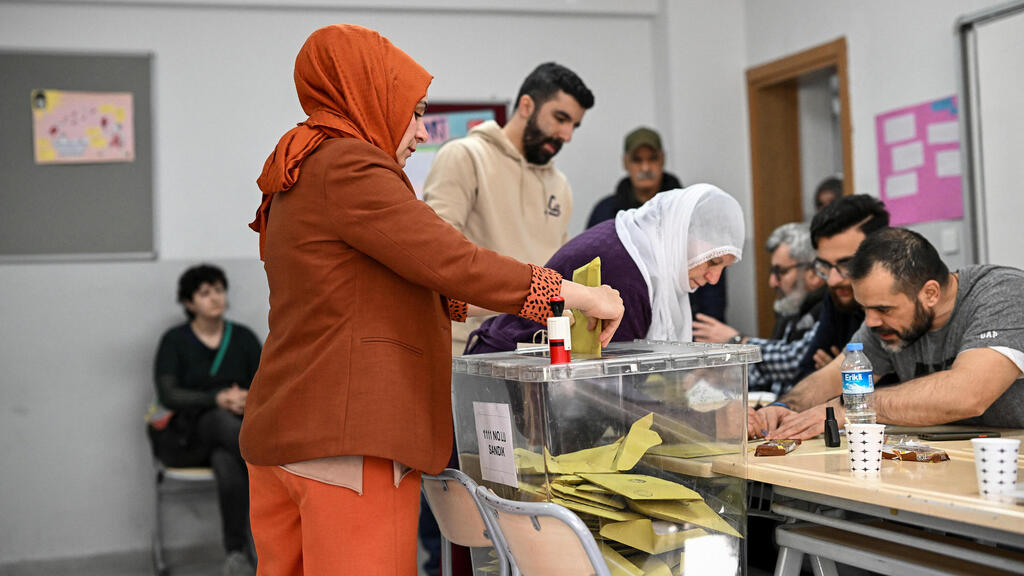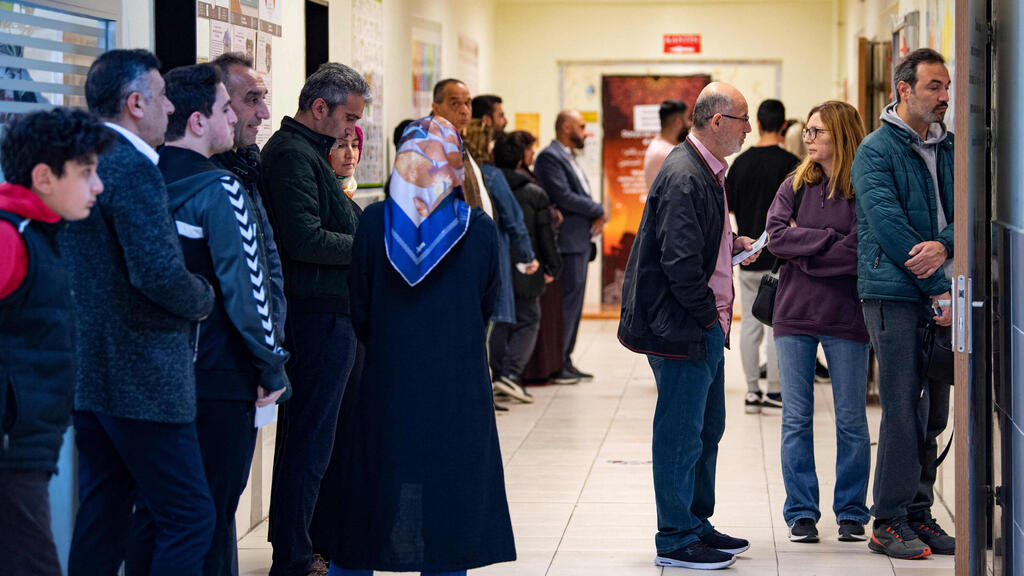Getting your Trinity Audio player ready...
Polling stations opened in Turkey on Sunday for what many define as a crucial moment in the history of the country, which could bring an end to the 20-year rule of sitting President Recep Tayyip Erdogan.
Read More:
The Turkish people will determine who the next president and members of parliament will be in the elections. In the presidential race, polls give a slight advantage to Erdogan's rival, Kemal Kilicdaroglu, the leader of the secular Republican People's Party (CHP) in opposition to the current government.
To win in the first round, one of them will need to receive more than 50% of the votes. If both fail to hit the mark, they will go to a runoff, which will be held on May 28th.
"We have all missed democracy," Kilicdaroglu said as he cast his ballot in Ankara. Erdogan voted in Istanbul and called on the public to come out and vote to "show the strength of Turkish democracy."
Polls conducted last week confirm that this is Erdogan's biggest test since coming to power, showing that Kilicdaroglu is leading against Erdogan in the first round by a margin of 1.5% to 6%, earning 49.3% of the vote at the highest.
The same polls found that about 7% of the people intend to vote for the other two candidates in the race - Muharrem Ince from the Homeland Party and Sinan Ogan from the far-right Nationalist Movement Party.
On Thursday, however, Ince, who received the support of 2.2% of the voters, announced that he was withdrawing from the race. As most of Ince's supporters, a former CHP member, are expected to vote for Kilicdaroglu, this could tip the scales in his favor.
Turkey’s current president also seems to lose his power in the Turkish parliamentary elections, which have a total of 600 seats: the bloc that includes Erdogan’s Islamist Justice and Development (AK) Party is leading by about 4% (44% to 40%) over the National Alliance bloc formed by six opposition parties led by the CHP.
However, since another 12.3% intend to vote for the Labor and Freedom Alliance, a bloc led by the Kurdish HDP party calling for a vote for Kilicdaroglu, Erdogan is expected to lose his majority.
Turkey has a population of 85 million people and the number of eligible voters in the elections number over 64 million, including 3.4 million living outside of Turkey's borders.
Traditionally, Turkish elections boast a high voter turnout. Last elections in 2018, 87% of eligible voters cast their ballot. Even before the polls opened in Turkey, 1.76 million eligible voters in Germany, France, and other countries voted - a record 53%.
In the Turkish opposition, concerns have risen regarding election fraud, and the possibility that Erdogan and the government will not agree to transfer power in an orderly manner if they lose the elections.
Over the weekend, Erdogan responded to the opposition's concerns, stating that the Justice and Development Party and its coalition partners "will consider any result in the ballot box legitimate," and do "everything democracy requires." Erdogan claimed that the fear that he would refuse to leave power is "ridiculous."
As part of his election campaign, Erdogan claimed that the opposition receives instructions from the Kurdish resistance, and that his rivals cooperate with terrorists. In an attempt to gain the support of conservative voters, the president attacked the LGBT community, claiming that the opposition's support for them threatens family values.
Like in the previous election, Erdogan also used state resources and gathered the support of state media - with the screen time he received being significantly higher than that of Kilicdaroglu.
Against the backdrop of his decline in polls and high inflation in Turkey, Erdogan raised pensions and salaries in the public sector and increased subsidies on electricity and gas bills. On Sunday, as Erdogan voted in Istanbul, he was seen handing out money to children - a custom that is accepted during Muslim holidays, but not during election campaigns.
On Saturday, at a rally in Istanbul, Erdogan claimed that the opposition is collaborating with U.S. President Joe Biden in an effort to overthrow him. "Biden gave the order to overthrow Erdogan, I know it, and all my people know it," Erdogan said and called on Turkish expatriates living in the U.S. not to support Biden in the next U.S. elections.
Erdogan cited remarks made by Biden in January 2020, saying that Washington should support Erdogan's opponents to defeat him in the elections, not take the country through a coup. Officials in Ankara were incensed by the remarks and said the U.S. was unrightfully meddling in its internal affairs.
While the Turkish president claims that the opposition is collaborating with the U.S., the opposition accused Russia of attempting to interfere in the elections to help Erdogan, an accusation that the Kremlin denied.
According to Kilicdaroglu, his party has concrete evidence that Russia is behind the publication of a"deep fake" video on social media against the opposition. Kremlin spokesman Dmitry Peskov said that those who gave the information to Kilicdaroglu were liars and that Russia values its relationship with Turkey.
In contrast to Erdogan, the opposition candidate is considered a more favorable leader for the West, but Kilicdaroglu emphasized that if elected president, he would maintain Ankara's good relations with Moscow.
Kilicdaroglu is confident of his victory and declared that "we already see that there’s relief inside and outside of the country, and it’s clear that I’ll be elected president."
In Kilicdaroglu’s recent rallies, he called on the public to come out and vote to "change Turkey’s fate" and "put an end to authoritarian rule" in the country - after years in which Erdogan's opponents claimed that he was gradually undermining Turkish democracy.
"We will show the whole world that our beautiful country can restore democracy, through democratic means," Kilicdaroglu said.
Kilicdaroglu held his last election rally on Friday in Ankara. On Saturday, he went up to the Mausoleum of Mustafa Kemal Ataturk - the founder of the Turkish Republic and leader of the Republican People's Party, which Kilicdaroglu currently heads.
Kivanç Dal, an 18-year-old student from Istanbul, voted for the first time in the elections Sunday. He said that the economic situation in Turkey led him to vote for Kilicdaroglu. "I can’t see my future here. Erdogan can build as many tanks and weapons as he wants - but as long as I lack money, I don’t care for it," he said.
Ahmet Kalkan, a 64-year-old resident of Istanbul, voted for Kilicdaroglu. "I consider these elections a decision between democracy and dictatorship. I choose democracy, and I hope my country will also choose so."
"This country needs change," said 26-year-old Nuri Jan from Diyarbekir, a city where most of the residents are Kurds and which was heavily damaged in February’s deadly earthquakes in the region. Jan is voting for Kilicdaroglu due to the economic situation in Turkey. "After the elections, we’ll start facing an economic crisis, I want things to change."
Haiti Arslan, 51, who also lives in Diyarbekir, said he would vote for Erdogan and the Justice and Development Party. According to him, "The economic situation in the country is bad, but I still believe Erdogan will fix it."
He added that he’s satisfied with Turkey's position on the world stage during Erdogan's tenure. "I want it to continue," he said.


